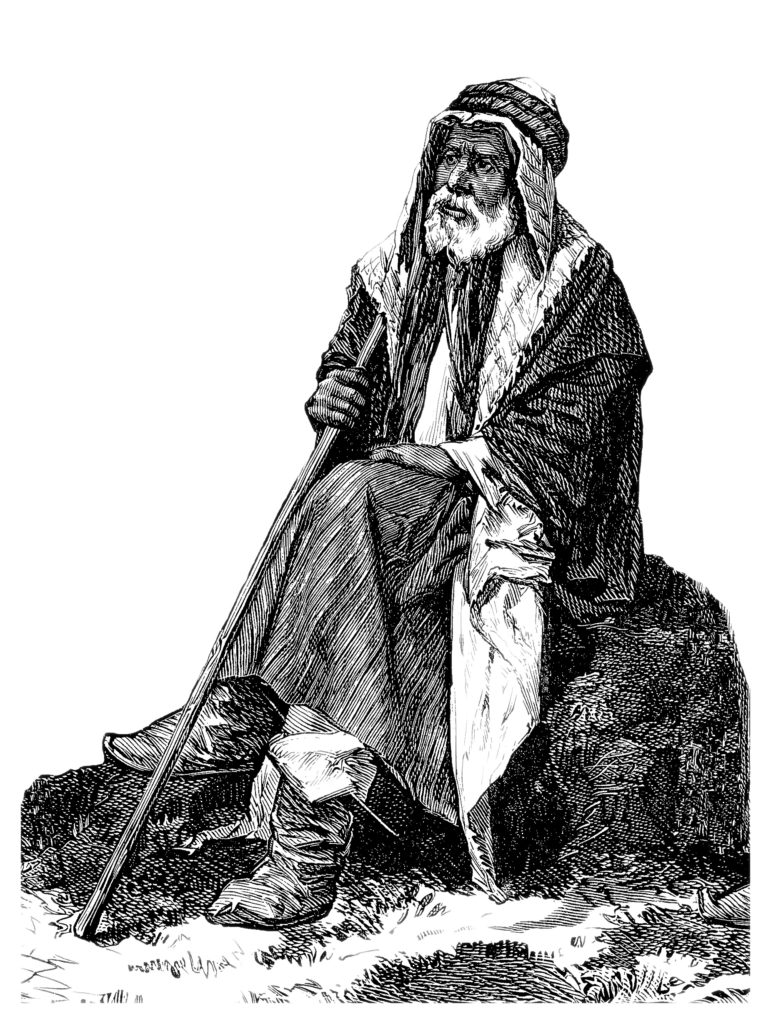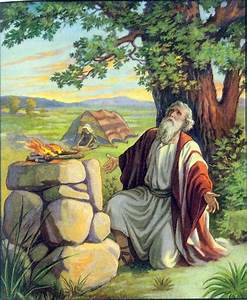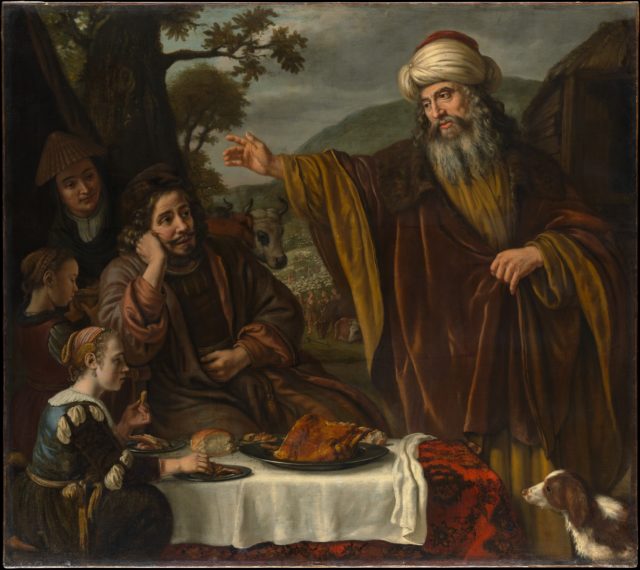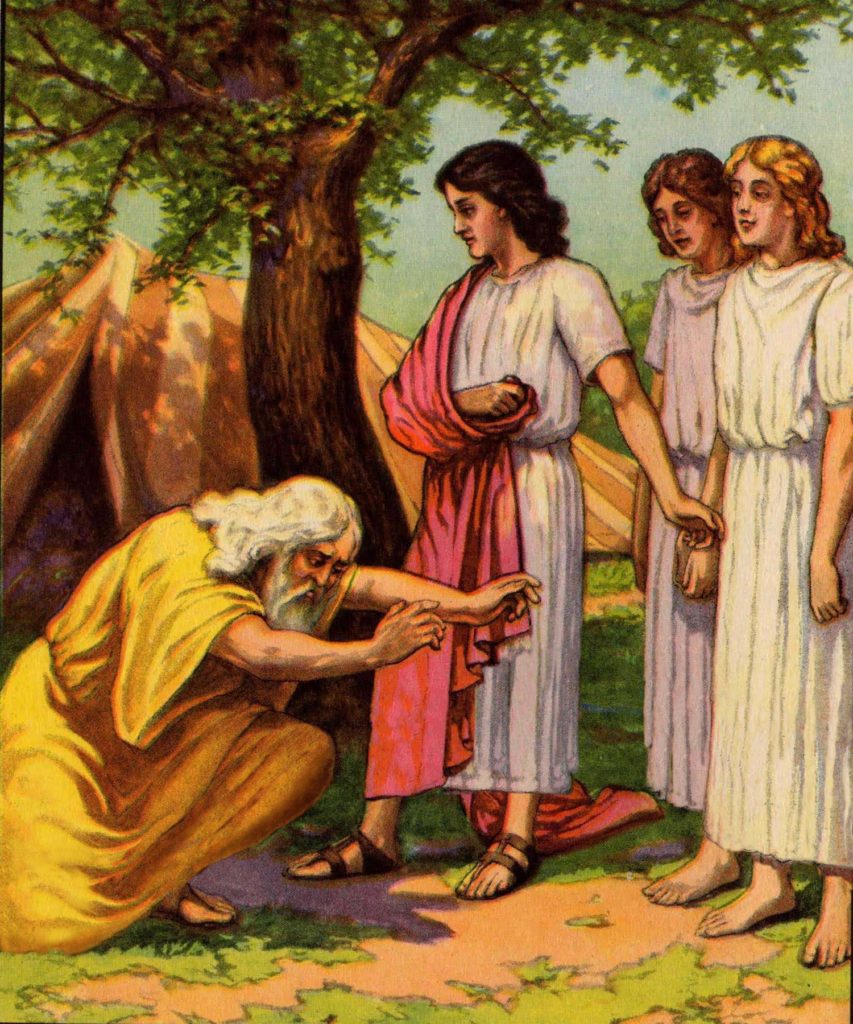
Genesis 12
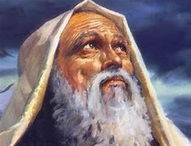
Genesis 12–41 on the Overcoming Faith of the Patriarchs—An Example to Follow
Scripture records that Abraham was the patriarch (literally meaning “the chief father”) of the Hebrew people, and a pillar of faith because of his trust in and obedience to YHVH Elohim. As such, he is often referred to as the Father of the Faithful. But when Elohim first called this man of faith and father of the Israelite people, was he a giant in his faith? Not at all. Yes he had faith, but his faith was imperfect; it had to grow, and it was a process, which we will discuss below.
Abraham’s faith, like the proverbial mustard seed, started out small, but it was still enormous compared to most other people. After all, on a mere promise from Elohim, he uprooted his entire family and travelled on foot hundreds of miles across the dangerous desert and through various countries and encountering many hardships along the way in hopes of a better life. It was if he were moving from New York City to Jawbone Flats, Oregon, a virtual ghost town in the mountains with a population four people! (Note: after more than 100 years, town of Jawbone Flats has since burned down in a tragic forest fire.)
Abraham’s first steps of faith were measured, cautious, incremental and at times hesitant, yet through it all YHVH was gracious because Abraham’s heart was inclined to do his will. Because of Abraham’s faithfulness, YHVH still credited righteousness to his spiritual account (Gen 15:6). Not only that, but he passed his mountain moving, gravity defying faith on to his children and grandchildren and beyond, and this legacy of faith lives on in many of his physical and spiritual descendants to this day.
There is much that we, as the children of Abraham through our faith in Yeshua the Messiah, can learn from this pillar of faith that will strengthen our own faith in YHVH Elohim and his promises.
Now let’s explore the life of Abraham.
Abraham (Abram)—The Father of the Faithful
Genesis 12:1, Get thee out of thy country. Did Abram immediately leave his father’s house and go directly to the country that YHVH would show him, or did he rather take incremental steps in that direction? Actually, Abram first settled in Charan before eventually translocating to Canaan. (Compare Genesis 11:31 with Genesis 12:1.) Charan is located in northern Mesopotamia and is nowhere near Canaan. Not only that, YHVH told Abram to leave his family, but instead he took part of his father’s house with him including his father and nephew. When Abram finally made his way to Canaan minus his father, he still had part of his kindred with him, something YHVH instructed him to leave behind (Gen 12:1). As it ended up, his nephew Lot proved to be a hindrance to Abram in fulfilling YHVH’s mission for his life in the new land. What lessons can we learn from this account?
First, YHVH is gracious to his people even when they fail to obey him completely and immediately. Abram was still taking steps of faith as imperfect as they may have been, and despite this, Scripture still refers to Abraham as the father of the faithful or of faithfulness (Rom 4:12, 16).
Second, Abram was a man of prominence in Babylon (Chaldea), was recognized as a mighty prince (Gen 23:6), and was 75 years old when YHVH asked him to leave the comforts of life in cosmopolitan Babylon to trek across the desert to the backwoods region of Canaan. No doubt, this was not an easy move for Abram for the reasons for reason of age and comfortability of lifestyle.
Abraham’s descendents who are disciples of Yeshua have to make similar choices as Abram did. They must decide whether to stay in the spiritual Babylon of this world or to leave it. Yeshua told his disciples that they would have to make great sacrifices including possibly forsaking their family to be his disciples (Matt 10:35–39.) At the same time, Yeshua promised vast eternal rewards to those, who like our father Abraham, would forsake family, homes and material possessions for him as they set out in faith to fulfil their divine destiny ( Matt 19:28–29). What physical obstacles stand in your way of fulfilling YHVH’s spiritual calling, mission and destiny for your life?
Genesis 16:1–16, Abraham takes matters into his own hands. The faith of Abraham, the father of the faithful, was tried greatly. After waiting years for a son through whom YHVH would fulfil is promises to Abraham, he finally gave in to doubt and unbelief. In stead of waiting for YHVH to give him a son, Abraham too matters into his own hands and endeavored to work out YHVH’s plans and purposes in his life through fleshly means. The result was Ishmael, the father of many of the modern Moslem Arabs. This mistake has had far-reaching geopolitical consequences for YHVH’s chosen people to this day!
Do you have trouble waiting on YHVH? Remember that YHVH’s primary goal in your life is NOT to bring YOUR dreams to pass or to give you a comfortable and happy life, but to form in you the person and character of Yeshua (Rom 8:28–29). Like anything of value, this only comes through time, much struggling and overcoming as well as the heat and pressure of spiritual refinement.
The faith-building refinement to which YHVH subjected Abraham would continue to occur in the lives of his descendants as the patriarch saw in a most amazing prophetic vision (Gen 15:12–14). In the vision of “Between the Pieces,” the birds of the air (a spiritual picture of Satan and his demons) wanted to interrupt the fulfilling of YHVH’s plans for the nation of Israel (verse 11). But through this dark vision, Abraham slept (verse 12). That is to say, he rested in YHVH, thus allowing him to work out his purposes according to a divine time schedule regardless of the occurrence of concomitant and distracting events. Through this process of faith-testing and character-building trials, YHVH refines his people into the spiritual vessels he wants them to be. Psalms chapter 37 describes this process of “not fretting,” “committing your way to YHVH,” “trusting also in him,” “resting in YHVH,” waiting on YHVH, and letting him direct our steps. (See Ps 37, entire chapter, with special focus on verses 4–7, 23–24.) The Bible refers to this process as “sanctification” (or becoming set aside for a holy purpose). It involves coming into a place spiritual maturity—of going from being a spiritual child to a mature adult in YHVH.
Like a lot of us, Abraham found himself struggling with waiting upon YHVH to fulfil his promises. As a result of Abraham’s lack of faith, he chose to “help engineer” the fulfillment of YHVH’s promises in his life. He slept with Hagar and Ishmael was the result. There have been lasting conflicts in the Middle East and beyond ever since due to Abraham’s lack of faith.
Genesis 21:1–7, YHVH visited Sarah.YHVH had promised Abraham a son years before. At age 90 did not YHVH suddenly drop a son into Sarah’s womb. During the intervening 15 years, year after year, Abraham and Sarah had to walk out their faith by attempting repeatedly to become pregnant, each time failing, until finally, at the appointed time it happened. This tell is vivid lesson for all of Abraham’s spiritual descendents about the faith-walk, and about overcoming discouragement and doubt. Obviously, Abraham’s faith was tested. Could he still trust YHVH’s promises of a son after all these years? Often when don’t receive quick answers to our prayers we give up. How is your faith compared to that of Abraham’s?
Abraham learned some hard lessons with Ishmael. After that, he finally began to have complete faith that YHVH would give him a son by Sarah. Faith is dynamic, and is neither passive nor presumptive. As an act of faithful obedience, the elderly Abraham continued to have physical relations with his wife until Isaac was born.
Genesis 22:1, Elohim did tempt Abraham.Trials and temptations show the disposition or character and metal of the human heart, whether it be righteous or unrighteous, pure or impure. When tested do you whine, grumble, accuse and mock others, defend yourself, backbite or become despondent? Or do you submit to the purifying fires of YHVH’s spiritual forge? During his lifetime, YHVH tested Abraham ten times. Being told to sacrifice Isaac was the last and most severe test. Despite the severity of this test, his faith and obedience was steady.When was the last time you faced such a test? What was your response? Did you pass or fail the test?
Note the development or progression of Abraham’s faith from the time he left Ur in Chaldea until the Akeidah or Binding of Isaac. He went from a spotty or mixed faith to a full and mature faith in YHVH. Being willing to give up his only beloved son was the ultimate test of his faith, and he passed with flying colors to become the father of the faithful. YHVH asks some of his children to give up things that are near and dear to them including spouses, children, careers, homes, dreams, material possessions, fame and sometimes our lives in order to follow him, but the eternal rewards are worth the sacrifice! Yeshua promises his followers:
And everyone who has left houses or brothers or sisters or father or mother or wife or children or lands, for My name’s sake, shall receive a hundredfold, and inherit eternal life. (Matt 19:29)
Sarah—A Woman of Great Faith and Co-Heir With Abraham of YHVH’s Promises
Behind every great man, as the saying goes, is a great woman. Although Scripture primarily focuses on Abraham and faith-based relationship with YHVH, it goes without saying that he could not have risen to any notable spiritual heights without a woman of similar faith at his side. So let’s no shine the spotlight on what the Bible has to say about Sarah.
- Sarah was very beautiful in character and physical appearance, since the two are related (Gen 12:10–20). A person with an ugly, angry, bitter disposition will not have a beautiful, attractive countenance.
- Amazingly at age 90 Sarah was still youthfully beautiful, or else it is unlikely that King Abimelech would have abducted her and wanted to marry her (Gen 20:2). Often behind a woman of beautiful countenance is a person of beautiful character. This attractiveness drew the attention of a king.
- Sarah was coequal with Abraham in the covenantal promises. Prior to Gen 17:15–22, the covenant was solely with Abraham. Here Sarah was made an equal party in this covenantal promise. And just as Abraham’s new role was signified by a change of name, so was Sarah’s. The name Sarai, means “my princess,” implying that she owed her greatness to her status as Abraham’s wife. Henceforth she would be called only Sarah, which signifies that she would become a “princess to all the nations of the world.” Prior to the covenant, Sarai’s personal majesty made her the princess of Abraham (and his country Aram). Now, however, all limitations were removed. She was princess “par excellence”—to all mankind (The Stone Edition Chumash, p. 75).
- In preferring Isaac over Ishmael, Sarah protecting the spiritual atmosphere of her home. She was guarding her righteous son, Isaac, from the profaneness and mockery of the unrighteous Ishmael. She was concerned that Ishmael’s behavior toward Isaac would impede or prevent Isaac from fulfilling his godly mission. Any relationship with wicked people would have been harmful to Isaac and his children as Abraham recognized when he decided that he could not remain together with Lot. This is why Sarah demanded that Abraham drive Ishmael and Hagar away, and why YHVH ratified Sarah’s righteous request (The Stone Edition Chumash, p. 97, Gen 21:10–11). Sarah knew that “evil conduct corrupts good manner” (1 Cor 15:33).
- Sarah was obedient and respectful to her husband, and Paul used her as an example for righteous women to follow.
Likewise, ye wives, be in subjection to your own husbands; that, if any obey not the word, they also may without the word be won by the conversation of the wives; while they behold your chaste conversation coupled with fear. Whose adorning let it not be that outward adorning of plaiting the hair, and of wearing of gold, or of putting on of apparel; but let it be the hidden man of the heart, in that which is not corruptible, even the ornament of a meek and quiet spirit, which is in the sight of God of great price. For after this manner in the old time the holy women also, who trusted in God, adorned themselves, being in subjection unto their own husbands: Even as Sarah obeyed [to listen, to hearken to a command, be obedient, to submit to] Abraham, calling him lord [Gr. kurios means “master, sir; a title of honour expressive of respect and reverence”]: whose daughters ye are, as long as ye do well, and are not afraid with any amazement. Likewise, ye husbands, dwell with them according to knowledge, giving honour unto the wife, as unto the weaker vessel, and as being heirs together of the grace of life; that your prayers be not hindered. (1 Pet 3:1–7)
- Sarah, like Abraham, had faith in Elohim. Behind Abraham, a great man of faith, was Sarah, who was a great woman of faith.
Through faith also Sarah herself received strength to conceive seed, and was delivered of a child when she was past age, because she judged him faithful who had promised. Therefore sprang there even of one, and him as good as dead, so many as the stars of the sky in multitude, and as the sand which is by the sea shore innumerable. (Heb 11:11–12)
Eliezer—A Faithful Servant of Abraham
Genesis 24:12, YHVH give me success. Scripture directs us to, “Trust in YHVH with all your heart and lean not unto your own understandings, but in all your ways acknowledge him and he shall direct your paths” (Prov 3:5–6). Abraham’s example of faith had a profound influence upon Eliezer, his chief servant, whom he commissioned to find a wife for Isaac.
Abraham was a man of faith, and Scripture calls him the father of the faithful (Rom 4:12, 16). Eliezer was likewise a man of faith. Abraham had taught him well. Eliezer evidenced this faith when he blessed Rebecca even before he knew who her identity (Gen 24:22). This action was based simply on his faith that YHVH had answered his prayer. Do we walk in such trusting faith, day-by-day, moment-by-moment? Are we teaching the little ones under our charge these same attributes as Abraham had taught Eliezer?
Genesis 24:45, Eliezer kept his faith alive through constant contact with Elohim. Obviously, Eliezer was in constant communications with YHVH through prayer. Is this not a character trait of a righteous person? 1 Thessalonians 5:17 says to pray without ceasing. In Luke 18:1–7, Yeshua teaches his disciples and us about the benefits of righteous and prevailing prayer. How often do you pray? Once a day? When you pray, is it merely a morning and/or evening ritual that leaves your soul (mind, will and emotions) untouched and unchanged? Is this the kind of relationship the Father is seeking with you? A mighty man of Elohim once when asked the question, “How long do you pray each day?” he replied, “Seldom do I pray more than one-half hour, but seldom do I go more than a half hour without praying.” Could this be said of you?
Note that people of faith are people of continual prayer communication with YHVH.
Rebekah, the Bride of Isaac—A Humble Woman of Faith From the Beginning
Genesis 24:58, I will go. From her debut in the Genesis narrative, Rebecca demonstrated unusual faith. Like her Uncle Abraham and Aunt Sarah, she was willing to leave the comforts and security of Babylonia and to go with a stranger to a strange place and live there as a virtual nomad roaming the barren wilderness of Canaan. When asked, “Will you go with this man?” She replied quickly and to the point, “I will go” (Gen 24:58). Some Bible teachers view Eliezer whose name means “El is (my) help” as a prophetic symbol of the Holy Spirit (who Yeshua referred to as the Helper (John 14:16, 26; 15:26; 16:7) and Rebecca as representing the bride (or saints) of Yeshua.Do you have such unreserved devotion to Yeshua, the Lover of your soul and your Betrothed, that you will go WHEREVER he leads (Rev 14:4) no matter how difficult or uncomfortable the way? Or have you placed restrictions and qualifications on him? Compare your faith on a scale of one to ten with that of Abraham, Eliezer and Rebecca. Regardless of our level of faith, YHVH is patient with his children. If we will follow him, even if our faith is mustard seed-sized, he will lead us slowly as your faith in his Word and promises slowly increases like exercising a muscle.
Abraham in his wisdom sought a woman of faith for his son. He sent Eliezer hundreds of miles to find such a woman, while overlooking numerous Canaanite women in his own backyard. That is how dedicated Abraham was to obeying YHVH!
Isaac—Walking in the Footsteps of His Father
Continue reading


